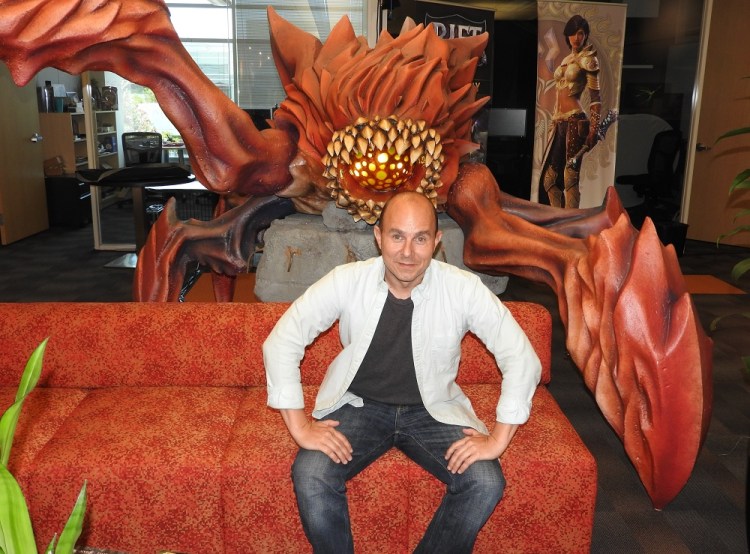GamesBeat: It seems like that puts the emphasis on that core loop of fun, whatever people call that.
Hartsman: Exactly right. You’re familiar with EverQuest from back in the day, of course. They just opened up a progression server to give you the old 1999 EverQuest experience. It’s interesting to me to see that. It’s the biggest server they have right now. There’s still an audience that wants the four-hour, five-hour, 12-hour session, as well as audiences that want five or 10 or 20 minutes.
When I think about how audiences get broken up, a lot of time I think of it in a breakdown of how much time they have to commit. How much time do they feel they have free before they’re willing to come into your game? The shorter that time is, the greater the number that will be. But there’s still attraction all up and down that curve.
GamesBeat: What do you think about brands right now, compared to new IP? You don’t have that many outside of Defiance.
Hartsman: On the one hand, I appreciate the built-in audience of a potentially recognizable brand. On the other hand, one of the biggest, most attractive attributes of working on online games is the speed at which you can iterate and the independence that requires. You tend to need to be very independent to work at that speed. There’s a spectrum of attractiveness across both of those things.
I’d love to be making Huge Recognizable Game Online, but at the same time I can’t turn that on a dime in the way I can with a Rift, a Trove, a Defiance, or our next game. It’s just different. There are many different things to like about games, and about making them.
GamesBeat: Do you feel like Daybreak is your most direct competition?
Hartsman: No, not at this point. If I had to say “direct” — Nexon still brings in MMOs. There’s Old Republic, but EA doesn’t really do outside MMOs. For us, going forward, we see ourselves both as a creator and a publishing partner. Nexon does that. I don’t know anybody else. Are there even any other people here in the states doing both creation and publishing? A lot of the time you end up with pure publishers. We’re trying to be both. We’re trying to be primarily creators who are also helping other people bring their games online. I genuinely don’t think there’s an identical direct competitor right now.
GamesBeat: If you were to define the new Trion, what would you say?
Hartsman: The original Trion vision was about technology, technology, technology. Over time that morphed into one that was about games and customers, games and customers, games and customers. Then that expanded into games and customers with our games as well as partnered games. That’s where we are right now. It has to be about the games. It can’t ever be all about the tech, because customers can’t care about the tech. Customers care about games. They care about fun.
That’s been my background. I started out as a writer for games, back when they were text MUDs. For me it’s always been about, what is the end user experience like? How can we work with more people who have the same vision we do for what awesome is? How can we constantly be improving over time?
It’s been quite a transition to get there, but we just had our biggest year ever last year. I’m happy to say that it looks like — when we’re prioritizing the things we should be prioritizing, we tend to do very well. As long as we stick to our values, we should be good. That’s where, for me, values and culture are so much of what makes this place work.
VentureBeat's mission is to be a digital town square for technical decision-makers to gain knowledge about transformative enterprise technology and transact. Learn More



